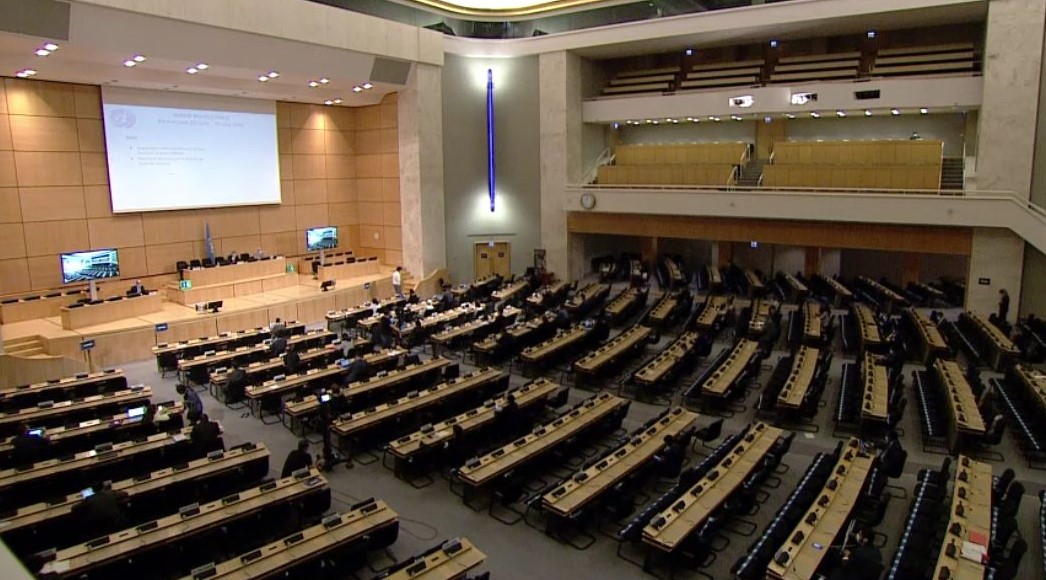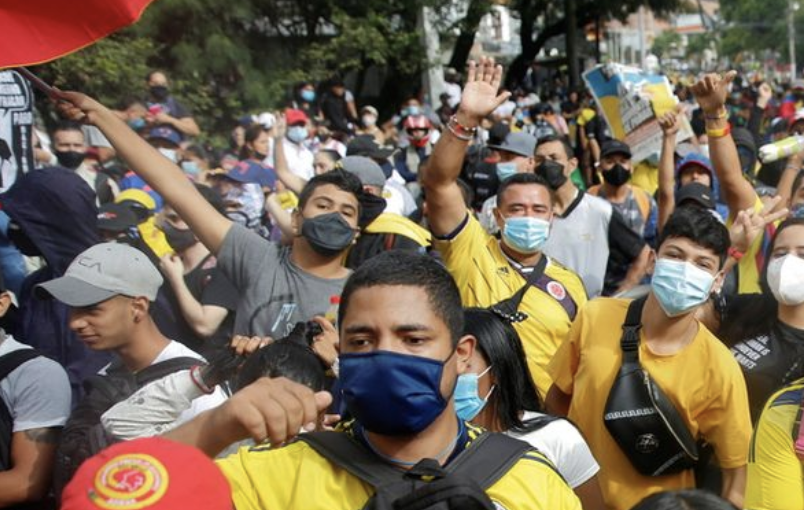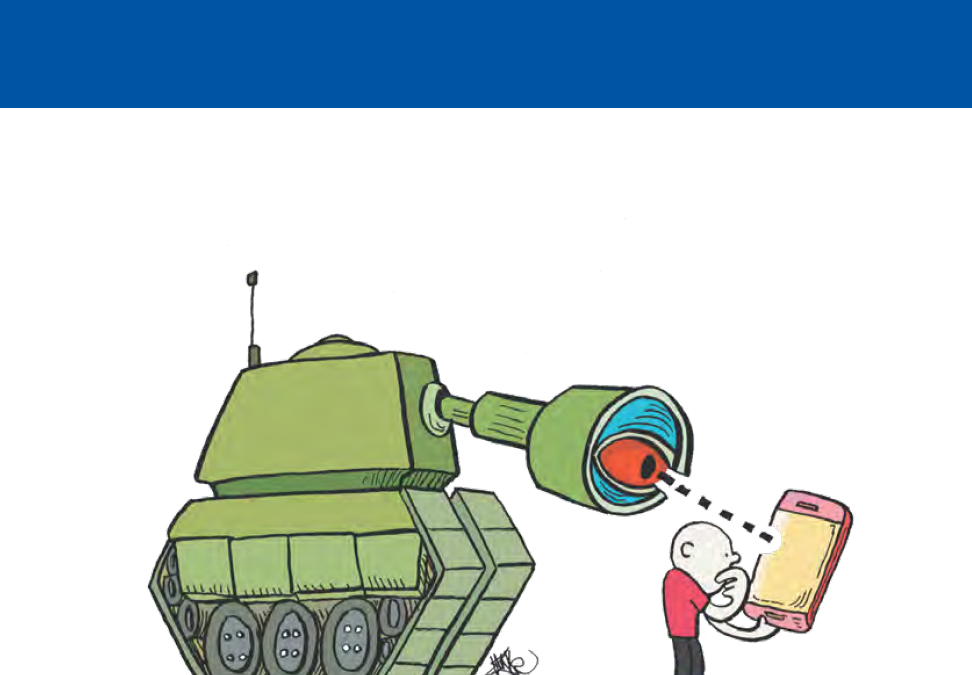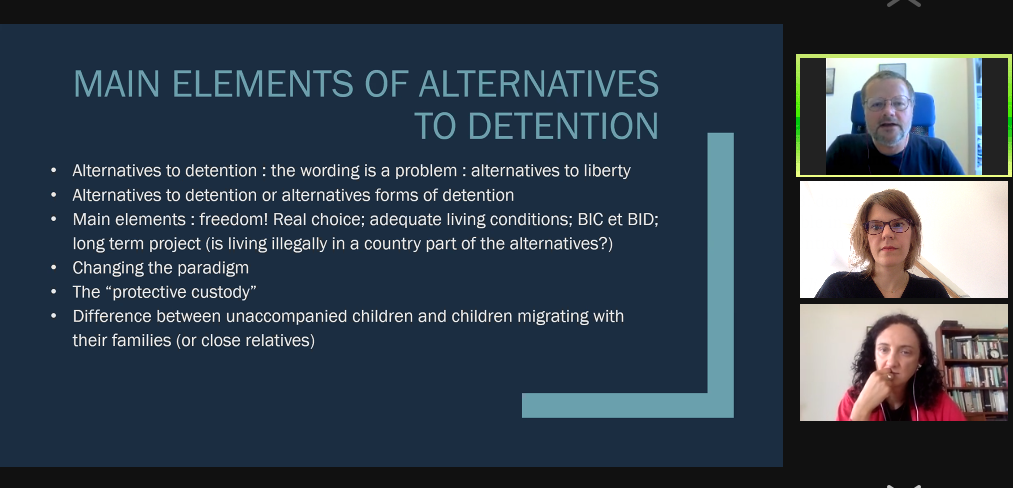
Jun 28, 2021 | Advocacy, Non-legal submissions
The ICJ joined civil society organisations in a statement to the UN Human Rights Council to express deep concern about at a global backlash against LGBTIQI during the interactive dialogue with the Independent Expert on protection against violence and discrimination based on sexual orientation and gender identity.
The joint statement reads as follows:
“This is a joint statement.
This June marks 10 years since the first resolution on protection against violence and discrimination based on sexual orientation and gender identity. We welcome the Expert’s work and his essential role connecting the lived realities of LGBT people and communities and defenders with the UN.
We also welcome this report and the analysis of gender grounded on international human rights law it provides.
We support the Expert’s intersectional approach, as well the sustained focus on identifiying root causes of violence and discrimination based on sexual orientation and gender identity. We highlight with concern the Expert’s acknowledgement that ‘trans and gender-diverse persons suffer an unacceptable state of extrajudicial executions, forced disappearance, torture and ill-treatment, as well as systematic exclusion from education, employment, housing and health care’.
In the context of the growing anti-human rights movement, we witness a global backlash against the human rights of women and LGBTQI people, as well as an increase in criminalization and persecution of defenders in the context of governments’ purported responses to the COVID-19 pandemic. We have seen increased targeting, harassment, attacks and detention specifically of trans and gender-diverse human rights defenders who are targeted because of the work they do and because of who they are.
With respect to promoting and protecting human rights, the Expert clearly highlights the critical role of national, regional and international civil society; while noting that civil society spaces are actively being shrunk. We echo the Expert’s call on States to ‘uphold an enabling environment for civil society working for the human rights of trans, non-binary and gender-non conforming persons, and to respect and protect their rights to freedom of assembly and association’.
The voices of LGBTQI human rights defenders must be heard in order to keep governments accountable for human rights violations, and to continue to demand that the UN system fulfill its human rights mandate.
In this vein, we deplore the systemic underfunding of the UN human rights system and the drive for so-called efficiency, including the cancellation of general debates in June. General debates are a vital part of the agenda by which NGOs can address the Council without restrictions. We call for the reinstatement of general debates at all sessions, with the option of civil society participation through video statements.
Finally, we welcome the Expert’s recognition of the Yogyakarta Principles and the Yogyakarta Principles plus 10, as authoritative articulations of existing international human rights law in relation to issues of sexual orientation and gender identity, as well as their broad application in international, regional and national fora.
Thank you”
Signatories:
Amnesty International;
Article 19;
CHOICE for youth and sexuality;
International Commission of Jurists;
Outright Action International;
Swedish Federation for Lesbian, Gay, Bisexual, Transgender, Queer and Intersex Rights (RFSL)
Accountability International;
Association Humanity First Cameroon;
Campaign Against Homophobia, Poland;
International Institute on Race, Equality and Human Rights;
ERA – LGBTI Equal Rights Association for Western Balkans and Turkey;
Edge Effect; GATE, Trans, Gender Diverse and Intersex Advocacy in Action;
Human Rights Defenders Network-SL;
Intersex Asia Network;
Lesbian and Gay Federation, Germany;
Mulabi;
Planet Ally;
Organization Intersex International – Chinese;
The Norwegian Organization for Sexual and Gender Diversity;
Synergia – initiatives for human rights;
Young Queer Alliance.

Jun 23, 2021 | Advocacy, Non-legal submissions
The ICJ joined over 300 civil society organisations in a statement to the UN Human Rights Council to express deep concern about the situation of human rights in Colombia during the presentation of the annual report of the UN High Commissioner for Human Rights.
The statement reads as follows:
“Thank you Madam President,
On behalf of the undersigned organisations, we thank the High Commissioner for her annual report, particularly on activities undertaken in Colombia. The situation in the country confirms the need for continued monitoring and provision of technical assistance by her Office
Throughout the eight weeks of mass protests that have spread to different cities throughout the country, we’ve seen killings, excessive use of force, acts amounting to torture and other ill-treatment, enforced disappearances, sexual violence, arbitrary detentions and attacks, including cyber-attacks against those exercising their right to protest, all of which constitute flagrant human rights violations. These violations are taking place in spite of a Supreme Court ruling ordering the security forces to refrain from acting violently and arbitrarily in a systemic manner during demonstrations, and calls by human rights mechanisms to cease these violations.
The protests are rooted in structural demands linked to the respect for human rights, and other concerns including poverty, inequality, growing social injustices, impunity, systemic racism and systematic violence against human rights defenders -including social, campesino, trade union and indigenous leaders and the press. They are also a result of the continued failure to fully implement the 2016 Peace Accord.
We urge the Council to call on Colombia to cease the use of violence and to respect the right to peaceful protest; to independently investigate human rights violations committed in this context; to accept the visit of the Special Procedures; and facilitate the building of social consensus around structural demands.
Finally, we ask the High Commissioner, through her Office in Colombia, to prepare a report on the human rights violations committed during the protests.
Thank you Madam President.”

Jun 22, 2021 | News, Publications
The Thai authorities should immediately reform laws, policies and practices that have led to increasing violations of human rights in the digital sphere, the ICJ said in a new report launched today.
The 75-page report, Dictating the Internet: Curtailing Free Expression and Information Online in Thailand, documents a range of laws that does not comply with international human rights law and standards. These laws contain vague and overbroad provisions, wrongly criminalize free expression or prescribe disproportionately harsh penalties, and are applied without independent oversight mechanisms.
These arbitrary restrictions have intensified in response to the COVID-19 pandemic and pro-democracy protests.
“The Thai authorities have continued their systematic abuse of existing and new deficient laws to curtail not only the right to freedom of expression, opinion and information online, but also the rights to peaceful assembly, health and other rights,” said Sam Zarifi, ICJ’s Secretary General.
The Thai authorities have also pressured and co-opted big technological companies to improperly restrict or block content on their platforms, through court-enforced demands and the filing of criminal complaints for failing to comply.
The report further documents how the Thai authorities have failed to adequately protect individuals against the human rights abuses of private actors, who include companies harassing its critics through legal processes and perpetrators of online speech inciting discrimination, hostility or violence.
The report provides specific recommendations to the Thai authorities and technological companies in the communications sector to safeguard in law and practice the rights to expression, opinion and information online as well as offline. These recommendations call for the authorities to, among other recommendations:
- Repeal or substantially amend criminal law provisions that criminalize or unduly restrict human rights online, and review existing laws or develop legislation to protect against SLAPP lawsuits and the incitement of discrimination, hostility or violence;
- Cease harassment and persecution of all individuals for merely exercising their human rights online;
- Refrain from future charges and drop all existing charges against individuals and social media companies facing prosecution for alleged violations of non-human rights compliant laws, and immediately release all held in pre-trial detention or imprisoned on conviction for such cases; and
- Refrain from restricting or blocking online content unless the decision to block has been undertaken following a full analysis applying international human rights law and standards, and authorized pursuant to an order by an independent and impartial judicial authority.
“The Thai authorities must act urgently to stem this deteriorating trend of human rights violations and abuses in the digital space, by repealing or substantially amending its laws, policies and practices in line with Thailand’s international legal obligations,” added Zarifi.
The report follows on from the ICJ’s December 2019 regional report entitled Dictating the Internet: Curtailing Free Expression, Opinion and Information Online in Southeast Asia assessing non-human rights compliant legal frameworks and case studies across Southeast Asia, including Thailand.
Report Launch
The report will be launched on 22 June 2021. The launch includes a panel discussion, which draws together human rights defenders, diplomats, journalists, lawyers and civil society to discuss the increasing attacks on freedom of expression and information online in Thailand through non-human rights compliant laws and practices.
The discussion will include as panelists:
- Sam Zarifi, Secretary General, International Commission of Jurists;
- Poonsuk Poonsukcharoen, Thai Lawyers for Human Rights (TLHR); and
- Chavarong Limpattamapanee, Chairman, National Press Council, Thailand.
Download
The full report is available in English here and in Thai here. The executive summary of the report is available in English and Thai. (PDF)
Contact
Sam Zarifi, ICJ Secretary General, e: asiapacific@icj.org, t: +66-62-702-6369
See also
ICJ, ‘Southeast Asia: ICJ launches report on increasing restrictions on online speech’, 11 December 2019
ICJ, ‘Vietnam: authorities must act to safeguard rights online and end harassment of those expressing themselves – ICJ new report’, 9 December 2020

Jun 21, 2021 | Advocacy, Non-legal submissions
The ICJ and Human Rights Watch today addressed the UN Human Rights Council in the Interactive Dialogue on the Report of the Office of the High Commissioner for Human Rights on COVID-19 responses and human rights.
The statement reads as follows:
Madam High Commissioner,
The ICJ and Human Rights Watch welcome your report on COVID-19 and human rights.
We believe that urgent action is needed beyond broad statements of condemnation of vaccine inequity. People without access to vaccines continue to live in fear of COVID-19 and, throughout the world, many continue to die.
Slow vaccine rollout continues across Southern Africa and Latin America and in Nepal and India despite the prevalence of quickly transmitting variants. In the face of such significant peril, Indian courts have questioned the rationality of government plans. In South Africa elite athletes and sports administrators have been vaccinated, while older persons and vulnerable populations continue to wait their turn.
Pharmaceutical companies impose far reaching non-disclosure agreements on governments which restrict access to health information necessary to combat corruption and ensure accountability. In Colombia, courts have ordered disclosure of contracts relating to COVID-19 vaccines despite such agreements.
COVID-19 response measures continue to be used in Cambodia, Thailand and Vietnam to restrict access to health information and stifle expression of human rights defenders. In Hungary similar tactics have been compounded by simultaneous attacks on judicial independence.
How will the OHCHR guide States on how to ensure effective judicial and other remedies are available for those whose human rights are threatened by inadequate or inequitable COVID-19 responses?
I thank you.”
Contact:Massimo Frigo, ICJ UN Representative, e: massimo.frigo(a)icj.org, t: +41797499949

Jun 21, 2021 | Agendas, Events, News
Children should never be detained in immigration context. Immigration detention of children is never in their best interests and is not justifiable, said experts during a transnational workshop on Alternatives to detention vs. alternative forms of detention of migrant children held by the International Commission of Jurists (ICJ) and partners on June 17 and 18.
“Instead of detaining children, case management should be used instead, and a community assistance and placement model should be used for families and children as an effective alternative to detention. Unaccompanied children should be placed within the mainstream care system,” Karolína Babická, legal adviser at the ICJ said.
During the workshop experts and practitioners from seven EU countries and international experts explored good and bad practices of alternatives to detention. In particular, the principle of the ‘best interests of the child’ was discussed as well as procedures for age assessment, and specific alternative arrangements for the care of children in migration, such as the return houses in Belgium, and regular reporting.
The group further explored ways to include unaccompanied migrant children in the mainstream child-care system rather than under the management of immigration authorities. The case-management and community placement model by the International Detention Coalition (IDC) was discussed in detail.
It was agreed that children must have access to procedural rights, including the right to be heard and to participate, access to information and to legal assistance and legal aid, access to interpretation, effective remedy and a guardian. Best interest of the child assessments as well as age assessment must be done through a rights-based approach, following child-friendly procedures and safeguards.
Any alternatives to detention applied by states should be monitored and regularly evaluated to ensure these do not constitute alternative forms of detention.
The workshop took place as part of the CADRE project and will be followed by second and third workshop as well as by on-line conferences and national trainings during the second year of duration of the project.
See the agenda here: Agenda CADRE Transnational workshop_17-18 June_final









